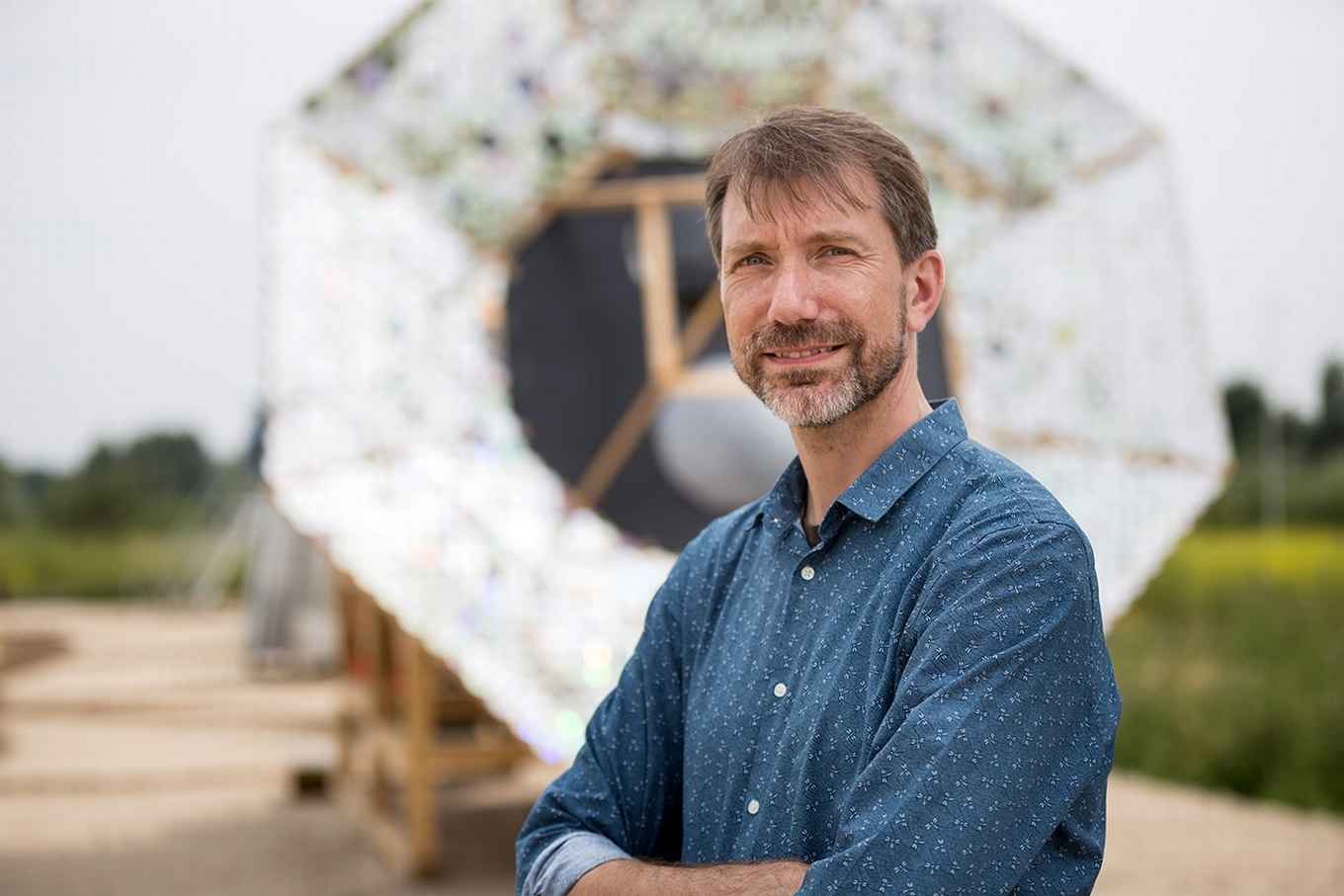Michiel Hogerheijde, professor by special appointment of Instrumental Astronomy
13 July 2017

The origin of planets
Michiel Hogerheijde carries out research into the formation of planetary systems, including our own Solar System and planetary systems around other stars. Planetary systems are formed out of disks of gas and dust that gather around young stars. Hogerheijde's research is focused on the physical processes that direct the chaotic planetary formation process within such protoplanetary disks. He studies the evolution of the chemical composition of proto-planetary material that ultimately results in the formation of oceans and atmospheres on earth-like planets. The interplay between physics and chemistry in the protoplanetary disk is central to his research.
Hogerheijde uses telescopes and satellites that are sensitive to the sub-millimetre and infrared areas of the electro-magnetic spectrum, such as the Herschel Space Observatory in the recent past and the Atacama Large Millimeter Array (ALMA) at present. In addition, Hogerheijde pioneers the development of numerical simulations of the transportation of radiation, which allows for planet formation theories to be tested against observations through synthetic images.
Image sharpness through interference
As professor by special appointment, Hogerheijde will concentrate on the application of astronomic interferometry on sub-millimetre and infrared wavelengths. This technology lets the light caught by multiple telescopes interfere, which considerably improves image sharpness. This will allow researchers to record the planet formation process that takes place in protoplanetary disks. Hogerheijde is among the first people to make use of ALMA, a sub-millimetre interferometer located at an altitude of 5,000 metres above sea level in the Chilean Andes, which has been operational since 2012. ALMA has since undergone further development and the array is now approaching full sensitivity and image sharpness. Hogerheijde heads the Dutch node of the European ALMA Regional Centre network, based in Leiden, which supports Dutch astronomers in the use of ALMA, safeguards the accuracy of their ALMA measurements and develops new observation techniques.
Furthermore, he is closely involved with the development of MATISSE, which will combine four telescopes of the European Very Large Telescope into a full-fledged infrared interferometer from 2018. MATISSE will enable Hogerheijde to study the inner regions of protoplanetary disks, where astronomers suspect earth-like planets are formed. This same area later turns into the so-called habitable zone, where planets capable of sustaining liquid water can exist.
Hogerheijde's special chair is part of the UvA's Anton Pannekoek Institute for Astronomy. In addition to conducting his own research into planetary formation, Hogerheijde will teach courses on astronomic interferometry to Master's students and supervise research projects conducted by Master's students and doctoral researchers.
About Hogerheijde
After obtaining his PhD in Mathematics and Natural Sciences at Leiden University (1998), Hogerheijde won a Miller Research Fellowship at the University of California, Berkeley (USA). In 2001, he was appointed Bart J. Bok Fellow at the University of Arizona's Steward Observatory (USA). He has worked at Leiden University since 2003, first as a university lecturer and since 2009 as an associate professor.
Hogerheijde has been awarded several research grants, including a Vidi grant in 2004 and a TOP grant in 2013. He has published more than 150 articles in academic journals, including Astronomy and Astrophysics, The Astrophysical Journal and Science. He was a member of the international ALMA Science Advisory Committee for a number of years and currently advises the MATISSE Science Group, among others. He is the programme director for Allegro, the European ALMA Regional Centre Node in the Netherlands.